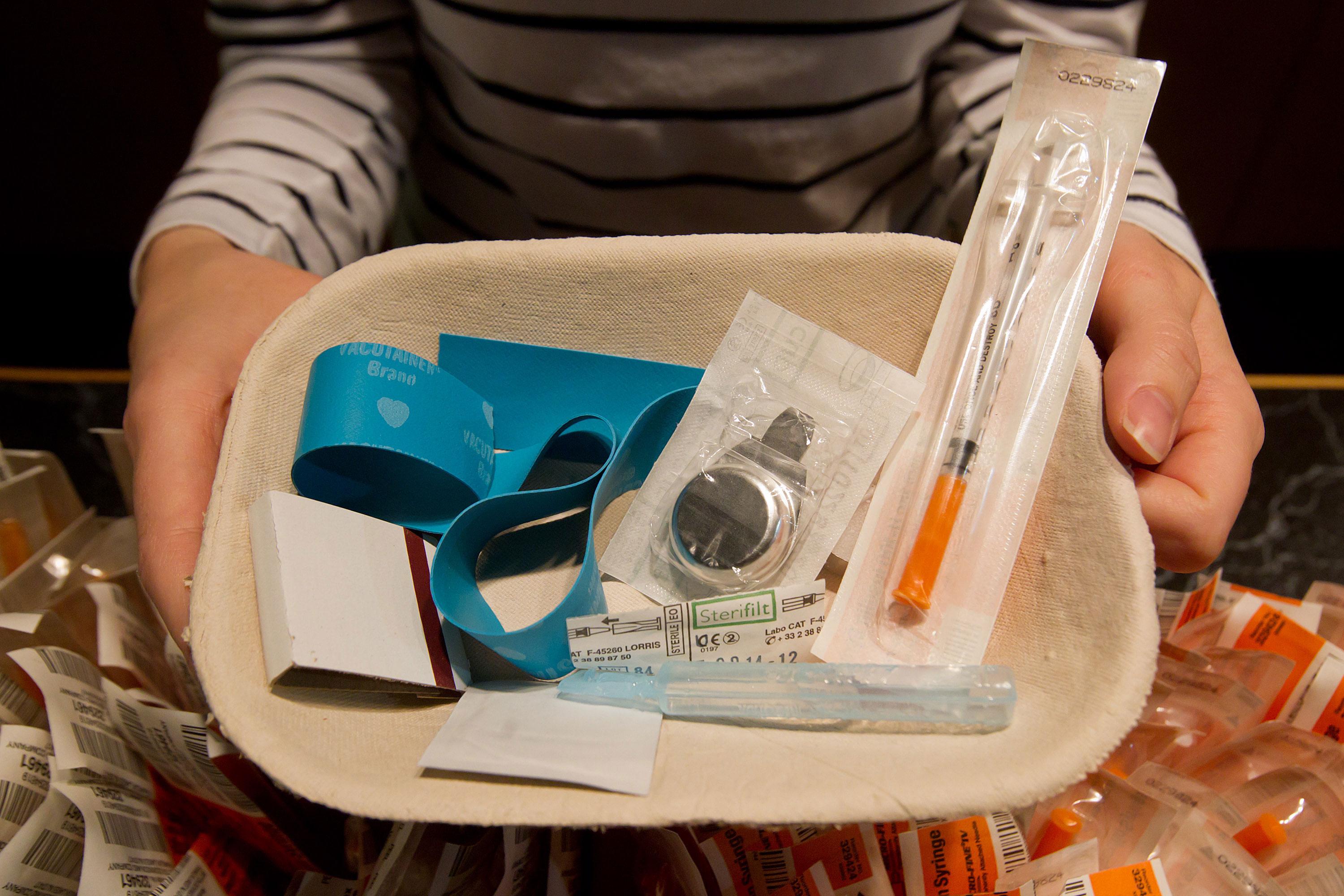
Colorado lawmakers may allow local communities to set up supervised facilities for the use of injecting drugs under a new bill introduced at the statehouse on Wednesday.
House Bill 1202 would let local governments decide whether to allow people to use illicit drugs such as heroin and fentanyl under the supervision of medical professionals. The bill refers to the sites as overdose prevention centers and says facilities would also provide harm reduction services such as counseling, referrals to substance use disorder treatment facilities, sterile equipment and tools to test for the presence of fentanyl.
Supporters say Colorado is facing a crisis of preventable overdoses.
“It's about saving lives,” said Democratic state Sen. Kevin Priola from Adams County, one of the bill’s main sponsors. “If people overdose, and there's no one there to provide naloxone to save their life, they'll never be able to go to rehab. They'll never be able to kick the habit because they're dead.”
Priola was part of an effort four years ago to open what would have been the nation’s first supervised injection facility in Denver. The measure was ultimately pulled due to legal threats, political pressure and opposition from both parties.
This year’s bill could face a similar uphill battle.
“I think that's just ludicrous,” said Republican House Minority Leader Mike Lynch, who spoke to CPR News before he had seen a copy or draft of the proposal. He believes safe injection sites would perpetuate drug use.
“To say we're going to make sure you safely continue your addictive habit is not a good policy,” Lynch said. “That makes no sense to try to facilitate safe illegal activity. It's still illegal activity, so it needs to be treated as such and punished accordingly.”
It’s a sentiment echoed by Democratic Gov. Jared Polis. A spokesman for Polis said in a statement that the governor is focused on getting help for people with addiction issues and ensuring the “scourge of fentanyl” is stopped.
“While he has not seen this particular legislative proposal, he would be deeply concerned with any approach that would contribute to more drug use and lawlessness,” the spokesman said.
Polis’ office noted that he signed a new fentanyl law last year. It passed the legislature after hard-fought negotiations and increased criminal penalties for the possession of fentanyl and set aside money for overdose reversal drugs. It also required jails to offer medication-assisted treatment and gave funding for testing strips to help users identify drugs laced with fentanyl.
Not all Democrats are sure where they stand on the latest proposal
State Sen. Kyle Mullica of Thornton is the legislature’s only registered nurse. He said he’s keeping an open mind and can see valid arguments on both sides.
“I don't think somebody should die just because they have an addiction,” he said. “They die alone of an overdose. But at the same time, we've been taking a lot of steps to try to get these products off of our street, and I think we need to be careful of normalizing it, saying it's okay.”
Tackling overdoses has greater urgency than ever as the state aims to rein in a wave of fentanyl deaths in recent years. That trend comes after opioid overdose deaths surged in Colorado during the last decade.
“Just because they have an addiction doesn't mean they're not members of our community, and they shouldn't be treated with dignity and respect,” Mullica said.
Fentanyl deaths spiked in recent years to 10 times the level they were a half-decade earlier. That’s happening, in part, because many other street drugs are cut, or diluted, with fentanyl, according to public health experts. Fentanyl is a powerful synthetic opioid similar to morphine. But it is 50 to 100 times more potent.
Last year, the state health department reported that Colorado has witnessed a recent drop in life expectancy not seen since WWII. And it’s driven by COVID-19 and overdose deaths.
"The biggest driver of the increases in drug overdose deaths in the past few years has indeed been fentanyl," Kirk Bol, the state's Vital Statistics Program manager, told CPR in 2022.
In 2017, the state recorded 81 fentanyl deaths. In 2021, the number rose to 912, half of all overdose deaths. Bol called it a “shocking increase.”
Andrew Kenney contributed to this report.








